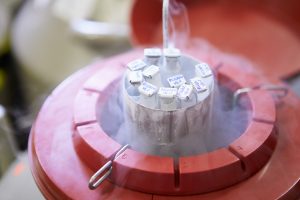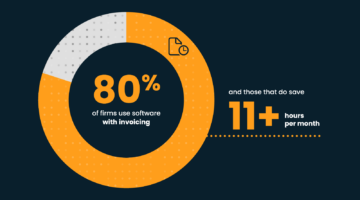 Home DNA kits are bringing sperm and egg donor anonymity to an end. The popular holiday present has provided a new mode of easy access to reliable information on our genetic makeup and, more importantly to some, our genetic relatives. Donor-conceived persons are now finding out information that was previously kept intentionally unavailable — the identity of their genetically connected donor parent.
Home DNA kits are bringing sperm and egg donor anonymity to an end. The popular holiday present has provided a new mode of easy access to reliable information on our genetic makeup and, more importantly to some, our genetic relatives. Donor-conceived persons are now finding out information that was previously kept intentionally unavailable — the identity of their genetically connected donor parent.
While the reality of information access has changed practically overnight, the law, at least in the United States, has been slow to shift. In some countries — Australia and much of Europe, to name a few — donor anonymity is not an option. These countries give donor-conceived persons the ability to have access to their biological history, even where a donor would prefer to remain anonymous. In many countries, this means that upon becoming a legal adult, the donor-conceived person will learn the identity of his or her donor.
The U.S. has been reluctant to regulate gamete donations, but we are starting to see the sprouts of change. In 2011, Washington State was the first to challenge sperm and egg donor anonymity with a law that requires sperm banks and egg donation agencies with gametes from Washington State to provide the donor’s medical histories and, importantly, full names to donor-conceived persons upon turning 18 years of age. Of course, the law has a major caveat. The agencies and banks are only required to provide the information if the gamete donor did not affirmatively opt out of being identified.

Why Better Billing Statements Can Improve Your Firm’s Finances—And Your Client Relationships
Outdated billing is costing law firms money. Discover how clear, modern billing practices boost profits, trust, and cash flow in 2025.
California is now taking a similar path — only with a little more effort to help out donor-conceived persons. As of January 1, 2020, California’s new Health and Safety Code Sec 1644.3, will lead to additional donor identity disclosure. The new law provides that:
(a) On request of a child conceived by assisted reproduction who attains 18 years of age, a gamete bank licensed in this state … shall provide the child with identifying information of the donor who provided the gametes, unless the donor signed and did not withdraw a declaration under paragraph (2) of subdivision (b) of Section 1644.2. If the donor signed and did not withdraw the declaration, the gamete bank shall make a good faith effort to notify the donor, who may elect under subdivision (c) of Section 1644.2 to withdraw the declaration and agree to release the donor’s information.
So even if the donor did opt out of having his or her identity revealed, upon the request of a donor-conceived person, the gamete bank has an affirmative duty to notify the donor as to the request, and allow that donor another chance with withdraw the declaration. The law didn’t go so far as to insert a guilt trip call from the child desperate to have knowledge of their biological parent, but close enough.
The new law goes on to provide that regardless of whether the donor signed a waiver, the donor-conceived person or, prior to the age of 18, his or her parents, shall have a right to the donor’s non-identifying medical information. Theoretically, the parents and donor-conceived person should already have that from when they went through the donor process. But it is still good to have legal confirmation of the child’s right to access information that could be important to the donor-conceived person’s health.

Billables Are Not The Same As Cash Flow. Here’s Why That’s Important.
Findings from the MyCase 2025 Legal Industry Report.
I spoke with California assisted reproductive technology attorney Amira Hasenbush about the new law. She thought it was a positive step for those conceived via gamete donation. She pointed out an interesting quirk in the law. In cases where the clinic failed to offer or keep a copy of a donor’s waiver, the clinic will be obligated to disclose the donor’s identity. Of course, she also noted that based on her experience with donors and recipients, it is not the donors who are as concerned about anonymity — and for those who are, they can choose to stop donating. She finds that it is more commonly the recipient parents who fear the repercussions of a donor entering their child’s life. The law in California is clear that the gamete recipients are the legal parents, but for some, the fear appears to be more about the emotional impact than the legal impact.
Time — a lot of time — will tell the impact of this new law. The effective date of January 1, 2020, applies to gametes collected after that date. Meaning that the first child to turn 18 from such gametes will not occur until at least 2038. And, at this rate, we may all have been taken out by a hurricane by that time.
 Ellen Trachman is the Managing Attorney of Trachman Law Center, LLC, a Denver-based law firm specializing in assisted reproductive technology law, and co-host of the podcast I Want To Put A Baby In You. You can reach her at [email protected].
Ellen Trachman is the Managing Attorney of Trachman Law Center, LLC, a Denver-based law firm specializing in assisted reproductive technology law, and co-host of the podcast I Want To Put A Baby In You. You can reach her at [email protected].